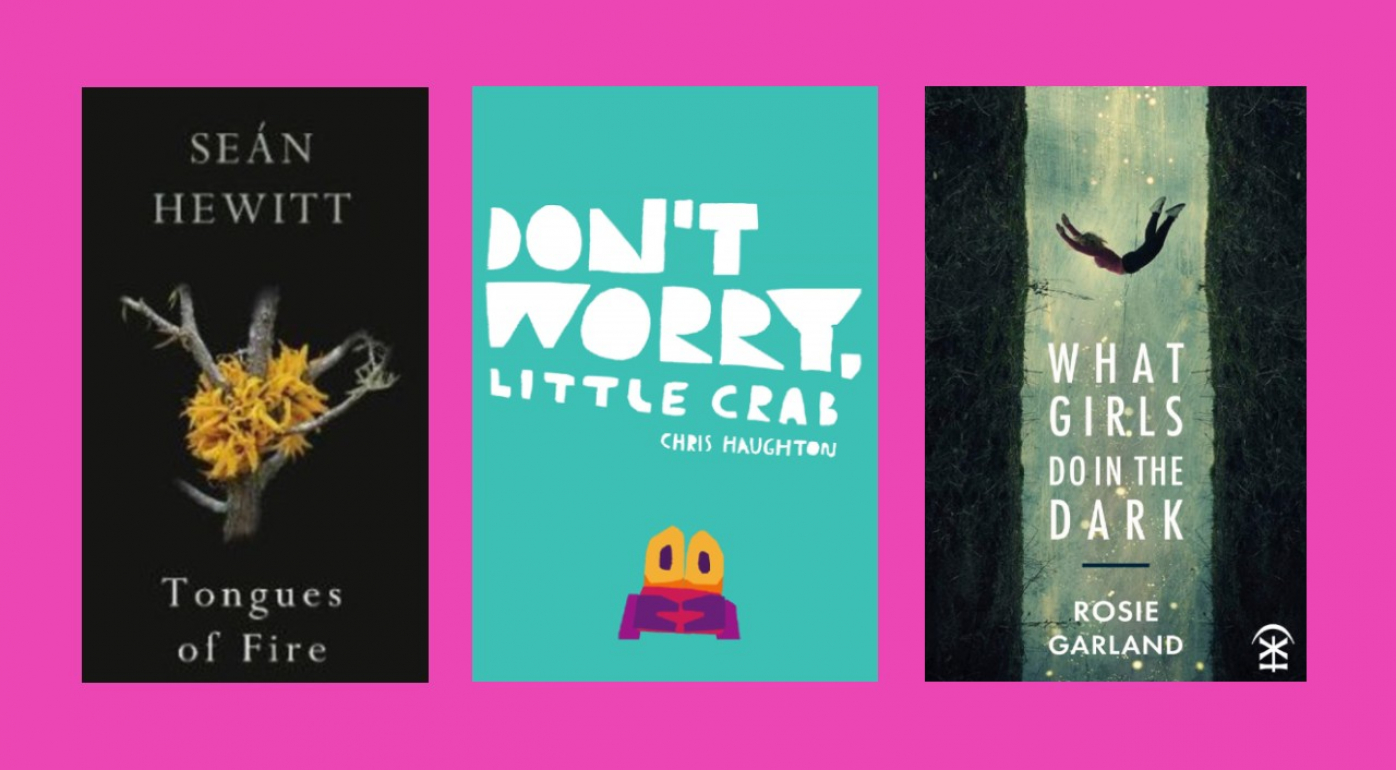Take a look at previous What We’re Reading blogs for more reading inspiration.
Don’t Worry, Little Crab by Chris Haughton
All Chris Haughton’s delightful picture books for young children open with a quotation, which the story then evinces. His latest, surprisingly, quotes Anaïs Nin: ‘Life shrinks or expands in proportion to one’s courage’, and it follows Little Crab as they venture out of their rock pool and into the sea for the first time, encouraged by their buddy/caregiver/mentor, Very Big Crab.
Haughton uses bold, Matisse-y slabs of colour – each page looks like a sugar-paper collage – and, as ever, he’s brilliant at suggesting nuanced emotions with tiny flourishes. Little Crab’s claws are somehow angled just the right way to convey equivocation at the edge of the shore. It’s the most visually sumptuous of all Haughton’s books so far; the underwater scenes use a palette of autumnal oranges, pinks and yellows, which seem uncannily luminous against the dark blue and turquoise background. Spoiler alert: Little Crab overcomes their fear, and eventually loves the sea so much they don’t want to leave. My three year-old and I both enjoyed it very much.
Jim Hinks, Senior Programme Manager
What Girls Do In The Dark by Rosie Garland
I’ve been waiting patiently for another poetry collection from Rosie Garland and let me just say that this collection meets and exceeds all expectations. Her poetry seeks to ask questions of mythology and astrology linking them together for brief moments before the women in these gothic pieces tear them both apart. Garland has a way of sprinkling just the right amount of wry humour and wit into her narrative poems that leave you curiously wanting to extend past the current limits of your imagination, but in a safe and strangely comforting way.
Afshan D'Souza-Lodhi, Programme Manager
Life As A Unicorn by Amrou Al-Kadhi
This memoir by writer, filmmaker and performer Amrou Al-Kadhi has had me laughing out loud and in tears within the space of a few pages. It charts the author’s story from being a god-fearing Muslim child to being a queer drag queen, exploring the intersections of sexuality, gender identity and religion. Amrou recounts the division between the two seemingly opposing sides of themself growing up with heartbreaking precision. But there are also incredibly warm and funny moments showing the versatility of their writing.
Matt Beavers, Programme Manager
Surge by Jay Bernard and Tongues of Fire by Seán Hewitt
In the second lockdown my concentration span has almost disappeared, but my emotional fragility has quadrupled, so, inevitably: I’ve been re-reading poems. Rilke, Thom Gunn, Lucille Clifton, Ingeborg Bachmann, but also recent books by Jay Bernard and Seán Hewitt. Bernard’s Surge has been especially impactful second time around: the nuance in their vision of community impresses me all over again, especially in how they show variations of race and class and sexuality at the mercy of political policy. The people whose lives border ours, whether like or unlike us – and how easily they may be lost through systemic neglect – gain power, again, through the events of 2020.
Hewitt’s prayer-like poems are compact and lyrical, with a close attention to nature, the body, and the various ways the inside meets the outside. They offer a strange and melancholic comfort in the wake of so much loss.
Swithun Cooper, Research and Information Manager
What have you been reading lately? Share your recommendations with us on twitter.
